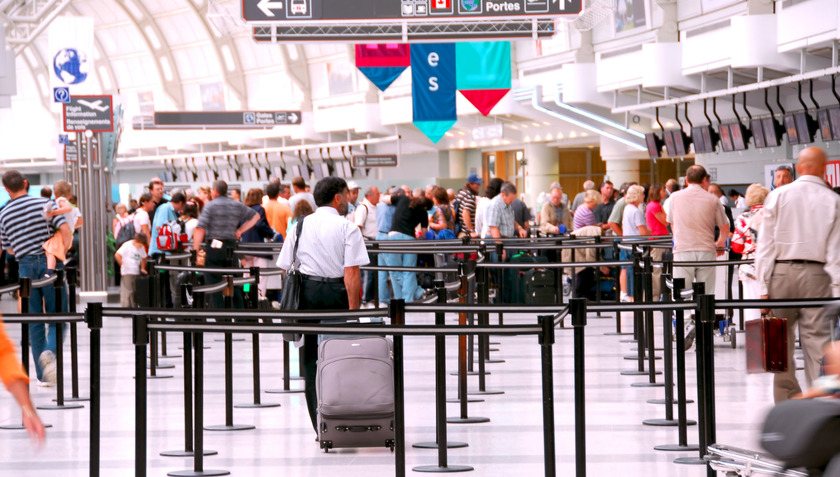Imagine passengers boarding a plane without ever having to present a passport, ID card, or airline ticket at the airport. By 2025, Abu Dhabi's Zayed International Airport could become the world's first paperless airport for passengers. This airport is renowned for its high-tech infrastructure and was recently praised by billionaire Elon Musk with the words, "America needs to catch up with them."
They are currently implementing the Smart Tourism Project, which aims to install biometric sensors at every airport identification checkpoint, from check-in counters to immigration counters, duty-free shops, airline lounges, and boarding gates.

In Abu Dhabi, this technology has been used in certain areas of the airport.
In Abu Dhabi, this technology has already been used in certain areas of the airport, particularly on flights operated by partner airline Etihad. However, the ambition to expand it across the entire passenger flow is a breakthrough.
"We are expanding to nine touchpoints, and this will be a world first. No prior registration is required; passengers will be automatically identified and authenticated as they move through the airport, significantly speeding up the entire process," said Andrew Murphy, Chief Information Officer at Abu Dhabi Airport.
Mr. Murphy also explained that anyone arriving in the United Arab Emirates for the first time, whether a resident or a tourist, has their biometric data collected by the Federal Agency for Identification, Citizenship, Customs and Port Security (ICP). The airport system relies on this database to verify passengers as they pass through security checkpoints.
"The real uniqueness here is that this particular biometric solution partners with ICP to use data to create a seamless experience for passengers. And that's why everyone can use it," Murphy explained.

Many airports around the world are moving toward streamlined immigration and customs procedures using facial recognition technology to alleviate pressure from massive passenger traffic.
Thanks to this technology, passengers can save a lot of time when going through the airport. Instead of having to queue for check-in, passengers can simply go through automated gates. This is especially useful for large airports like Abu Dhabi, which have a very high volume of passengers.
According to an October 2023 survey by the International Air Transport Association (IATA), 75% of passengers said they preferred using biometric data over paper passports and boarding passes. Therefore, other airports around the world are also trending towards reducing paper-based systems and adopting biometric technology.
Other airports around the world are also increasingly adopting biometric immigration procedures instead of paper-based ones. In an October 2023 report by IATA, 46% of respondents said they had used this technology at an airport before.
Prior to Abu Dhabi, Singapore was one of the pioneers in deploying this technology at airports. Additionally, Hong Kong International Airport (China), Tokyo Narita, Tokyo Haneda (Japan), and Indira Gandhi (India) have implemented biometric technology at certain points during immigration and customs procedures.
In the United States, the Customs and Border Protection agency has deployed biometric technology in the arrival areas of 96 international airports. At the point of departure, the US has implemented this technology in 53 locations.

 VI
VI EN
EN



































